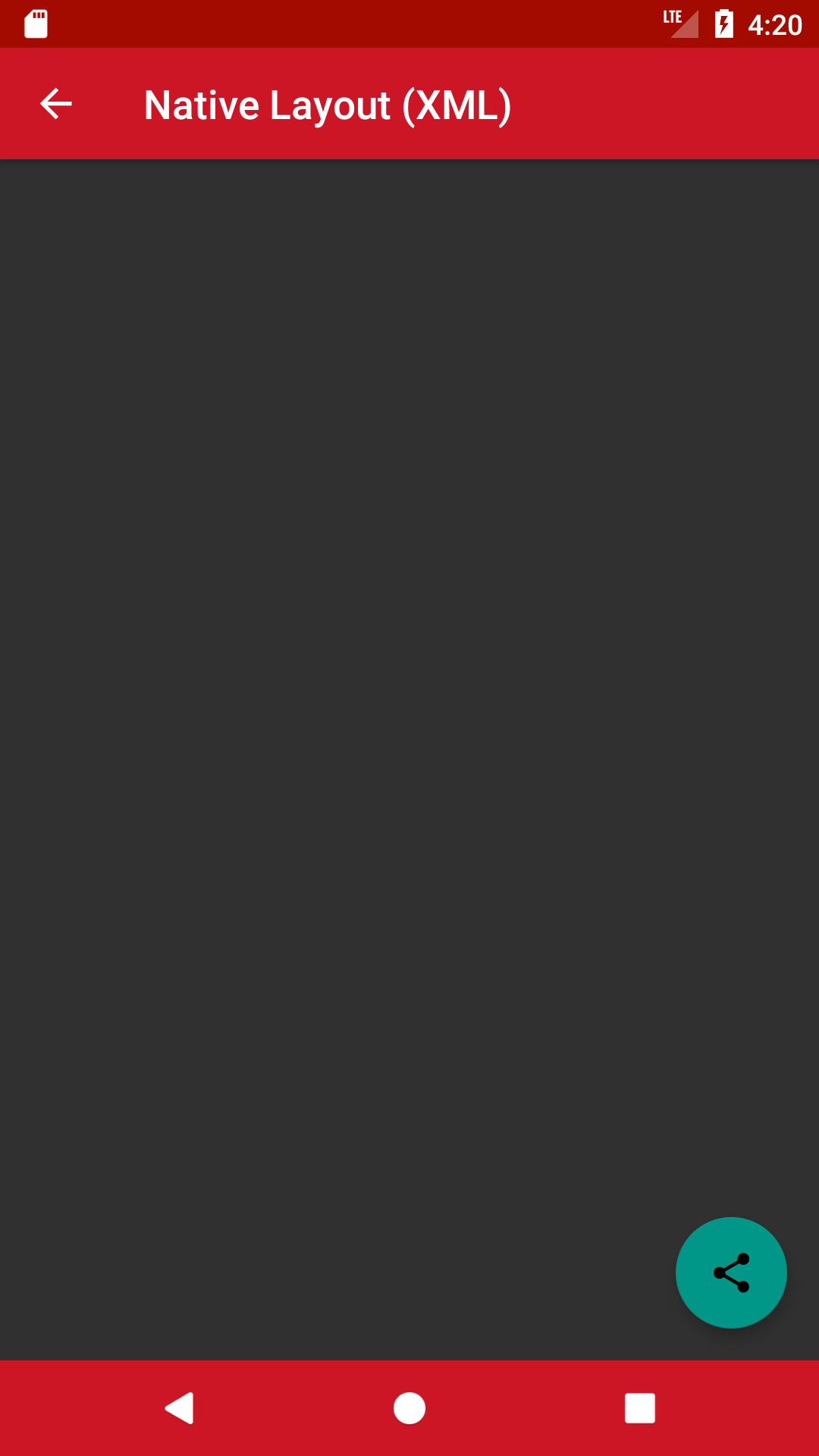# Using native Android XML layouts in Hyperloop
# Overview
This guide demonstrates how to use native Android XML layouts in Titanium by loading them via Hyperloop. Example views are the RecyclerView (opens new window), BottomNavigationView (opens new window) and FloatingActionButton (opens new window).
# Usage
1. Create a new XML layout (like `main_content.xml`) in "app/platform/android/res/layout" (Alloy) or "platform/android/res/layout" (Classic). Example:
<android.support.design.widget.CoordinatorLayout
android:id="@+id/main_content"
android:theme="@style/Theme.AppCompat.Light"
xmlns:android="http://schemas.android.com/apk/res/android"
xmlns:app="http://schemas.android.com/apk/res-auto"
android:layout_width="match_parent"
android:layout_height="match_parent">
<ListView
android:id="@+id/lvToDoList"
android:layout_width="match_parent"
android:layout_height="match_parent" />
<android.support.design.widget.FloatingActionButton
android:layout_width="wrap_content"
android:layout_height="wrap_content"
android:layout_gravity="bottom|right"
android:layout_margin="16dp"
android:src="@drawable/ic_action_share"
app:layout_anchor="@id/lvToDoList"
app:layout_anchorGravity="bottom|right|end" />
</android.support.design.widget.CoordinatorLayout>
2. Create an `LayoutInflater` class to inflate layouts (ES6+ style here):
import Context from 'android.content.Context';
import Inflater from 'android.view.LayoutInflater';
const inflater = Inflater.cast(activity.getApplicationContext().getSystemService(Context.LAYOUT_INFLATER_SERVICE));
3. Receive the R.layout.* ID required to inflate its view:
import Activity from 'android.app.Activity';
const activity = new Activity(Ti.Android.currentActivity);
// 'main_content' = file name, 'layout' = resource, e.g. app/platform/android/res/layout
// Can also be used to receive other R.* values like R.color.*, R.string.* etc.
const resID = activity.getResources().getIdentifier('main_content', 'layout', activity.getPackageName());
4. That's it! Inflate the view and add it to your Titanium view:
const view = inflater.inflate(resIDFromString('main_content', 'layout'), null);
myView.add(view);
# Output
Here is an example of using the previous code to load a FloatingActionButton inside a CoordinatorLayout:

# Full Example
For a full example and many other native examples, see the Hyperloop Sample App (opens new window) for details.